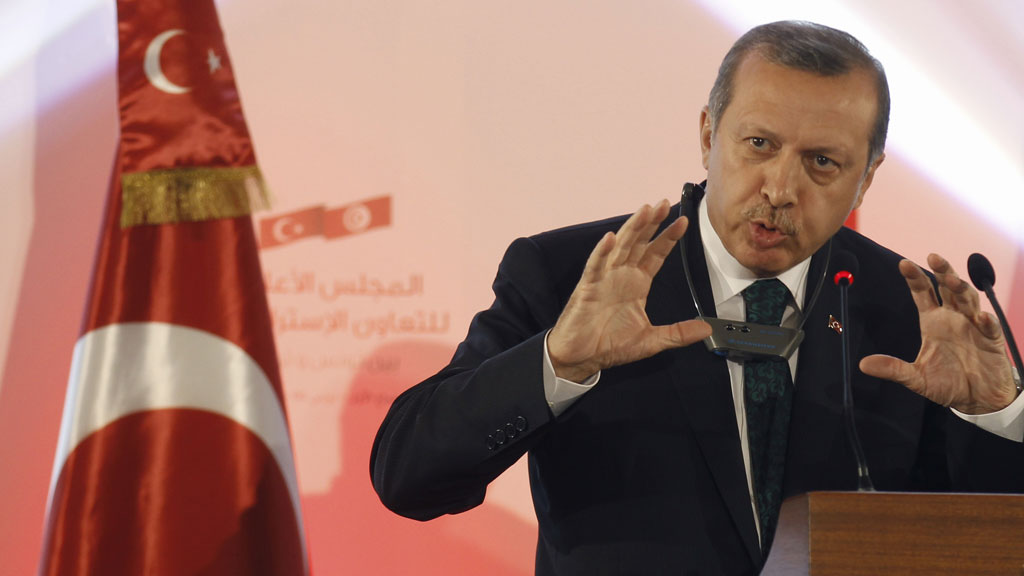Turkey protests: social media users detained
Already known for harsh treatment of journalists, the Turkish authorities crack down on social media users in the face of a wave of popular protests.

Prime Minister Tayyip Erdogan has remained defiant in the face of the protestors, saying on Thursday that the proposed redevelopment of a central Istambul park which sparked the original demonstrations, would go ahead as planned.
Speaking on a visit to Tunisia, he said “terror groups” were manipulating what had started as an environmental campaign.
“If you say: ‘I will hold a meeting and burn and destroy’, we will not allow that,” he told reporters after meeting his Tunisian counterpart.
“We are against the majority dominating the minority and we cannot tolerate the opposite.”
Twitter arrests
Mr Erdogan’s comments come a day after police are said to have raided 38 addresses in the western port city of Izmir and detained 25 people on suspicion of stirring insurrection on social media.
Izmir Deputy Prosecutor Ali Haydar confirmed that a detention order was issued for 38 people, but declined to give information on charges or how many were detained.
#Turkish govt blames foreign media 4 reporting protests; protestors blame Turkish media for not reporting. How nice to be so important.
— Lindsey Hilsum (@lindseyhilsum) June 6, 2013
Before the arrests, protesters in Istanbul had voiced suspicions that the Internet was being restricted.
“We had problems accessing Twitter and Facebook Saturday when the protests were intense,” said Deniz Utku, a digital marketing agency founder whose office is close to Taksim Square, the centre of the demonstrations.
CPJ Europe and Central Asia Program Coordinator Nina Ognianova said: “Restrictions on the Internet will only promote rumour and conjecture at a time that the country needs facts and freely expressed views.”
Freedom of speech

The latest arrests have renewed concerns about the Turkish government’s stance towards freedom of expression.
Figures released by press watchdog Reporters Without Borders show that Turkey have the highest number of journalists in the world in prison.
72 media personnel are said to be detained in Turkey, and at least 42 of whom are journalists said to be held in connection with their media work.
UK Director of Reporters Without Borders, Heather Blake, told Channel 4 News: “The number of arrests have risen drastically over the past few years.
“Generally, early attacks against the press are an indication of other problems on the rise.
“So I’m not surprised by the crack-down on social media activities.”
Kirsty Hughes, Chief Executive of Index on Censorship, added: “Our view is that the freedom of press in Turkey has declined over the last few years.
“It wasn’t perfect before but it has almost certainly got worse.”
According to some media reports, access to the Internet is being blocked through jamming devices in some areas of the city.
Regulators and operators, however, have said no sites had been blocked.
“No restrictions have been made in accessing social media sites,” Tayfun Acarer, head of the telecommunication regulator Information and Communication Technologies Authority (ICTA), told Reuters.
Turkcell, the country’s leading operator, said it had not received any request to block mobile communications in any part of Turkey.
“Our technical teams are working to provide uninterrupted communications services as always,” the company said on Twitter.
Industry experts said thousands of protesters in Istanbul would have put a heavy strain on networks.
Vodafone, a British company that was criticised when it complied with government demands to switch off service in Egypt along with other operators in 2011, said it had increased capacity in Turkey to meet demand for social media, in particular for sending images and video over mobiles.